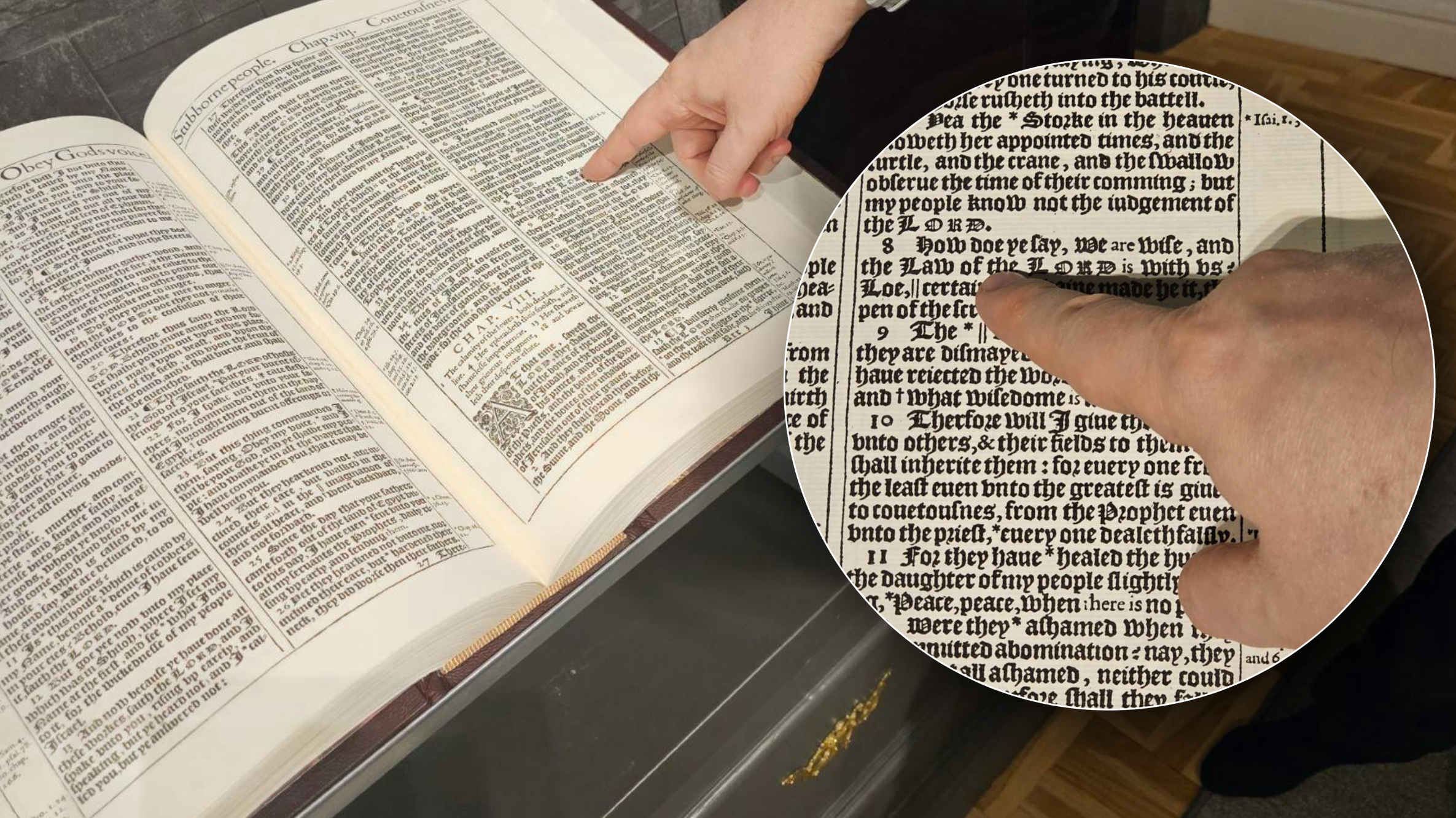Examples of translation work
A Comparison: SKJVB versus Other Translations
A concrete example of the importance of translation is the verse from First Corinthians 15:2, where the SKJVB manages to preserve the original meaning and doctrine by correctly translating ‘are saved’ instead of ‘will be saved,’ as many other translations incorrectly state. This kind of accuracy in translation is essential to maintain the purity of Biblical doctrine. You will also find, in most ‘modern’ Bibles, the same mistranslation in 1Cor. 1:18, which says:
Ty predikandet om korset är en dårskap för dem som förgås; men för oss som är frälsta är det Guds kraft.- 1Kor. 1:18. (SKJVB).
For the preaching of the cross is to them that perish foolishness; but unto us which are saved it is the power of God.- 1Cor. 1:18. (KJB).
See the following comparison of the Gospel; the good news,
First Corinthians 15:1-4 between KJB and SKJVB.
Read the Gospel, First Corinthians 15:1-4KJB |
1Cor. 15:1MOREOVER, brethren, I declare unto you the gospel which I preached unto you, which also ye have received, and wherein ye stand; |
1Cor. 15:2By which also ye are saved, if ye keep in memory what I preached unto you, unless ye have believed in vain. |
1Cor. 15:3For I delivered unto you first of all that which I also received, how that Christ died for our sins according to the scriptures; |
1Cor. 15:4And that he was buried, and that he rose again the third day according to the scriptures: |
Läs Evangeliet, Första Korintierbrevet 15:1-4SKJVB |
1Kor. 15:1DESSUTOM, bröder, kungör jag för er det evangelium som jag predikade för er, vilket ni också har mottagit, och vari ni står; |
1Kor. 15:2Genom vilket ni också är frälsta, om ni håller fast vid det ord som jag predikade för er, såvida ni inte har trott förgäves. |
1Kor. 15:3Ty jag meddelade er först av allt det som jag själv hade mottagit, hur att Kristus dog för våra synder enligt skrifterna; |
1Kor. 15:4Och att han blev begraven, och att han uppstod igen på tredje dagen enligt skrifterna: |
See below 21 examples of words in the SKJVB in relation to the KJV
The choice of words in the Swedish translation of the King James Version is related to how closely a word can be translated into Swedish, while the translation of the word is faithful in both pronunciation and meaning to the English text of the King James Bible.
(However, exceptions may occur)
KJV - king
SKJVB - kung (instead of konung).
KJV - prince
SKJVB - prins (instead of furste).
KJV - church
SKJVB - kyrka (instead of församling).
KJV - heal.
SKJVB - hela (helade.) (instead of bota/botade).
KJV - doctrine
SKJVB - doktrin (instead of lära).
KJV - cast
SKJVB - kastade (instead of driver, utdriven).
KJV - preach
SKJVB - predika (instead of förkunna).
KJV - wilderness
SKJVB - vildmarken. (instead of öknen).
KJV - mystery
SKJVB - mysterium (instead of hemlighet.).
KJV - field
SKJVB - fält (instead of åker).
KJV - generations
SKJVB - generationer (instead of släkte, släkttavla).
KJV - communicate
SKJVB - kommunicera (instead of tal eller ord).
KJV - triumph
SKJVB - triumf (instead of seger).
KJV - manifest
SKJVB - manifestera. (instead of uppenbara).
KJV - mother, & father
SKJVB - moder & fader (Fader) (instead of mor och far).
KJV - brother
SKJVB - broder (instead of bror).
KJV - command
SKJVB - kommendera (instead of befalla).
KJV - Bishop
SKJVB - Biskop (instead of församlingsledare).
KJV - Deacon
SKJVB - Diakon (instead of församlingstjänare).
KJV - publican
SKJVB - publikan (instead of tullindrivare).
Did you know that: 1611 King James Bible consists of :
(Note! The Apocryphal books are not included, as they are not part of the Old Testament).




